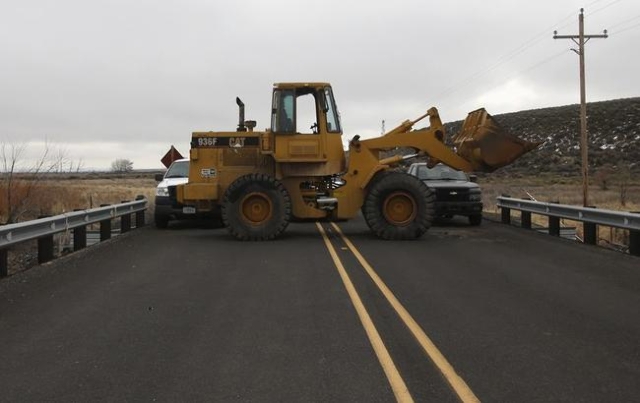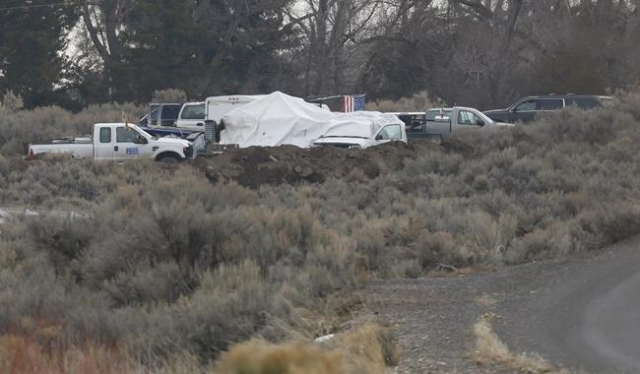FBI finds human feces near cultural site at Ore. wildlife refuge



The FBI said it has found a trench of human feces and a road excavated on or next to a sensitive cultural site with artifacts at the Oregon wildlife refuge where armed men staged a standoff with authorities, according to court records filed on Tuesday.
The filing came after the FBI on Friday said it was working with the Burns Paiute Tribe to identify damage to the tribe’s artifacts and sacred burial grounds at the Malheur National Wildlife Refuge during the six-week occupation.
Evidence teams began processing the crime scenes at the refuge on Saturday, two days after the final occupiers surrendered, and the process will last about three weeks, according to the document submitted in Oregon federal court on Tuesday.
U.S. Attorney Billy Williams of Oregon wrote in the filing that investigators found “significant amounts of human feces” in a trench at an outdoor camping area that was either on or next to a “sensitive cultural site.”
“Occupiers appear to have excavated two large trenches and an improvised road on or adjacent to grounds containing sensitive artifacts,” he wrote.
Williams also said in the filing — which was a response to occupiers’ requests to have their attorneys allowed onto the site — that firearms and explosives were found, and it was feared vehicles and buildings could be booby trapped.
He said he would be willing to allow Bundy’s legal team onto the site once authorities are finished processing it and before it is reopened to the public.
The takeover, which began on Jan. 2, was sparked by the return to prison of two Oregon ranchers convicted of setting fires that spread to federal property near the refuge.
It was led by brothers Ammon and Ryan Bundy, who were arrested in January along with other protesters on their way to speak at a community meeting in John Day, Oregon.
A spokesman for the group, Robert “LaVoy” Finicum, was shot dead during the stop.
The final four occupiers surrendered on Thursday with David Fry, 27, repeatedly threatening suicide in a dramatic final phone call with mediators before he gave up. All 12 people arrested in connection with the standoff will face charges of conspiracy to impede federal officers, according to the FBI.
The cost of the standoff will likely run into the millions of dollars, with local and state agencies looking to the federal government — and the arrested occupiers — to shoulder the bulk of the bills.
The total outlay may not be known for weeks or months, but the remote location of the occupation, at the Malheur National Wildlife Refuge in the eastern part of the state, combined with the complexity of the law enforcement response, suggest a costly operation, said Brian Levin, a criminal justice expert at California State University San Bernardino.
“When you have an unpredictable occupation like this you have to free up a lot of personnel assets and resources,” Levin said. “The cost of maintaining a multi-agency task force can get very expensive.”
Oregon Gov. Kate Brown is seeking up to $1 million from the state legislature to offset expenditures by counties and towns, and said the state in turn would seek reimbursement from the federal government.
Ron Hosko, former assistant director of the FBI’s criminal investigative division, said while the FBI will pay for its own personnel, the state of Oregon and the affected counties will likely be expected to cover their own costs.
“It’s going to be every agency for themselves,” he said.
The governor’s $1 million figure, equal to half of the law enforcement budget of Harney County where the refuge is located, is based on the estimated cost of personnel, transportation and lodging incurred by the state’s 36 counties, which all sent reinforcements to help Harney County deal with the occupation, said Kristen Grainger, a spokeswoman for Brown.
Harney County alone spent nearly $240,000 through the end of January, the latest figures available, said Laura Cleland, who was contracted to act as the county’s temporary spokeswoman during the standoff. Cleland’s $6,400 monthly fee is included in the county’s tabulation of the standoff cost.












